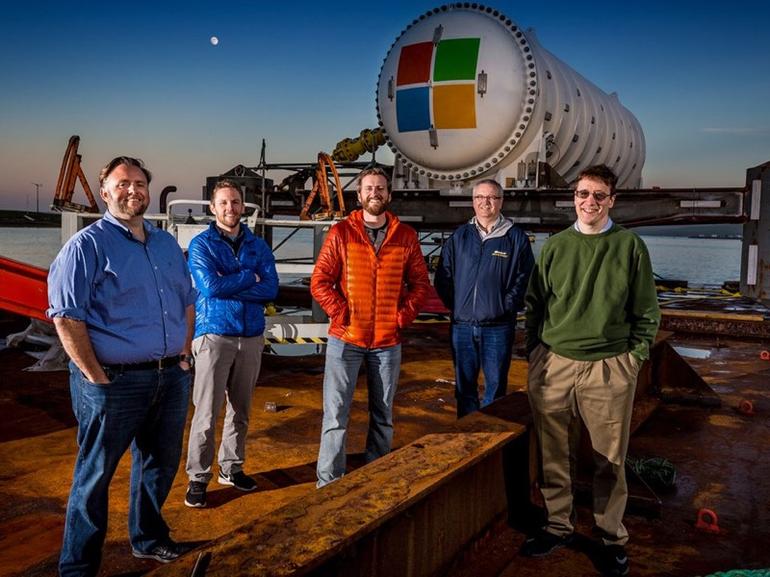The tech giant is hoping to run data centers on renewable energy and bring them closer to the people.
Data centers have long been criticized by environmental groups for their egregious energy use across the globe. A 2016 US government study found that data centers in the United States consumed 70 billion kWh of electricity in 2014, equal to 1.8% of the country's total energy consumption for that year.
In 2014, researchers estimated that data centers were responsible for about 2% of total global greenhouse emissions annually and that number continues to rise as more of the world's population gains access to the internet, cloud computing continues to expand, and artificial intelligence (AI) gets embedded in more and more devices. Many companies are now looking for ways to tackle this problem with low-cost, environment-friendly solutions.
Microsoft is hoping to address this issue from a number of different angles with the first-ever underwater data center. The initiative, known as Project Natick, began in July 2014 and officially moved into phase two on Tuesday, according to a Microsoft press release.
"When you are in this kind of exponential growth curve, it tells you that most of the datacenters that we'll ever build we haven't built yet," said Ben Cutler, leader of the Project Natick team in the release.
According to the release, their goal is to create "self-sufficient underwater data centers that can deliver lightning-quick cloud services to coastal cities" using "experimental, shipping-container-sized" prototypes. The first one has been deployed in Scotland near the Orkney Islands, and phase two will consist of watching the data center process workloads for the next 12 months to see if it is economically and environmentally viable.
"The deployment of the Northern Isles datacenter at the European Marine Energy Centre marks a milestone in Microsoft's Project Natick, a years-long research effort to investigate manufacturing and operating environmentally sustainable, prepackaged datacenter units that can be ordered to size, rapidly deployed and left to operate lights out on the seafloor for years," researchers noted in the release.
Microsoft was also quick to highlight that much of the world's population lives within 120 miles of a coast, and as populations continue to increase, demand for fast web surfing and video streaming will rise exponentially. They believe that placing data centers, which Microsoft calls the "physical clouds of cloud computing," in bodies of water near cities would lessen the need for lengthy cables and cut costs.
"If we can be within one internet hop of everyone, then it not only benefits our products, but also the products our customers serve," Peter Lee, corporate vice president of Microsoft AI and Research, said in the release.
The European Marine Energy Centre in Scotland is an ideal locale to test the idea because it already serves as a test site for experimental tidal turbines and wave energy converters that generate electricity from the movement of seawater, according to Microsoft. The entire town runs on renewable energy, making the data centers right at home.
The 40-foot structure carries 864 servers on 12 tall racks on the inside and now sits on the seafloor. The researchers believe it will last up to five years without maintenance, the release noted.
Microsoft worked with the 400-year-old Naval Group from France to create the submarine container for the data center, and said the ocean water provided a number of benefits for sustainable energy use.
"The world's oceans at depth are consistently cold, offering ready and free access to cooling, which is one of the biggest costs for land-based datacenters," the release said. "Underwater data centers could also serve as anchor tenants for marine renewable energy such as offshore wind farms or banks of tidal turbines, allowing the two industries to evolve in lockstep."
Christian Belady, general manager of cloud infrastructure strategy and architecture, said their hope is to one day have a fleet of data centers with their own sustainable power supply that can be sent anywhere.
"Energy self-sufficient data centers could be deployed anywhere within reach of a data pipe, bringing Azure cloud services, for example, to regions of the world with unreliable electricity, and eliminate the need for costly backup generators in case of power grid failures," the release said.
*this article was featured on TechRepublic.com on June 7, 2018: https://www.techrepublic.com/article/heres-why-microsoft-is-building-a-massive-data-center-underwater/




